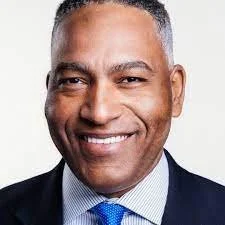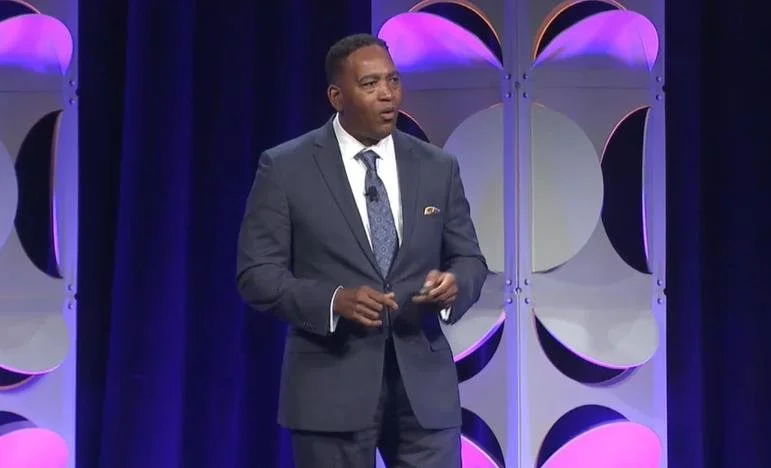Board Member Spotlight: Michael A. Echols, Advisory Board Chair for The Community Foundation in Prince George's County
In December 2023, Michael A. Echols (Mike) was elected as the new Advisory Board Chair for The Community Foundation in Prince George’s County. As part of our series on Leaders of the Future, we asked Mike to share his insights on Black Leaders in the Push for Economic Justice.
Why do you think economic justice is important?
Economic justice stands as the lynchpin of an equitable society, providing the necessary foundation upon which all other facets of social justice can thrive. It serves as the cornerstone of hope, instilling in individuals the belief that their efforts and contributions will be met with fair and just outcomes. Whether one is laboring through two jobs or pursuing an entrepreneurial endeavor, it is in the pursuit of alignment with a system that recognizes and rewards diligence and innovation. Without economic justice, the promise of opportunity and upward mobility remains elusive, perpetuating cycles of inequality and disenfranchisement. Therefore, ensuring economic justice is not merely a matter of fairness, but a fundamental prerequisite for fostering a society where every individual can fulfill their potential and contribute meaningfully to the collective well-being.
What does economic justice look like? Please describe how you or your organization promote or cultivate economic justice?
Economic justice encompasses a multifaceted approach aimed at ensuring fair and equitable distribution of resources, opportunities, and benefits within society. It involves addressing systemic inequalities and barriers to economic participation, as well as promoting policies and practices that empower marginalized communities and promote economic well-being for all. I consider myself a pioneering figure in attempting to assure equal opportunities field of cybersecurity, I seek economic justice for the community and the nation through advocacy and actions. I understand that economic disparities can significantly impact communities, particularly those historically marginalized or underrepresented in the technology sector. Access to the Internet, to training and employment opportunities are critical for fair representation. This is important as everything will be digitized in our near future. Therefore, my efforts center on actively working to dismantle barriers to entry in the cybersecurity field, advocating for increased access to education, training, and job opportunities for individuals from diverse backgrounds. My' efforts extend beyond individual empowerment to systemic change. I collaborate with government agencies, educational institutions, and industry partners to develop initiatives that promote diversity, equity, and inclusion in the cybersecurity workforce. By advocating for policies that prioritize economic justice, such as equitable hiring practices and investment in underserved communities, I aim to create a more inclusive and resilient economy that benefits everyone. Furthermore, I recognize the interconnectedness of economic justice with other forms of social justice. So, I actively support initiatives that address systemic issues such as racial inequality, gender discrimination, and socioeconomic disparities, recognizing that these factors intersect and compound to perpetuate economic injustice.
What does it mean to be a Black leader or to promote and cultivate Black leadership?
Fostering Black leadership involves actively addressing systemic barriers and structural inequalities that impede the advancement of Black individuals into leadership roles. The next "team" should not run into the same barriers and wall. This is done by This advocating for policies and practices that promote diversity, equity, and inclusion, while also challenging systemic racism. By making my back available to carry others who will move far beyond where my years will take the community we are carrying on a tradition started during the days of slavery. By advocating for social justice reforms and creating more equitable opportunities for leadership and success within the Black community and society at large, we can do more than just cultivate leaders. rather, we can thrust them forward and allow the choice of paths. My conditions now will not be the ones faced by the tip of the spear five years from now. Empowering the next generation to be impactful means providing the tools and letting them use what is in the tool bag in a manner appropriate to the positive change and progress.
When you reflect on Black History in the Greater Washington region, what does the next chapter of Black History look like to you?
The forthcoming chapter of Black history in the Greater Washington region embodies a narrative of hope, progress, and collective action towards a more inclusive and equitable society. It envisions a future where the legacy of resilience and triumph among Black communities continues to inspire generations, fostering increased representation, equity, and justice across all facets of life. The question is how do we empower the next generation to roll forward with minimal speedbumps in their path? And, what tools do we need to provide them enabling an ability to smoothly overcome challenges we are sure they will face? The next chapter of Black history will involve the dismantling of systemic racism and the implementation of policies that promote social justice and equity for all. Success will be measured by the achievement of objectives. One of them is that Black individuals are not only recognized for their contributions to the region's history, but also for their ongoing leadership in shaping its future.




